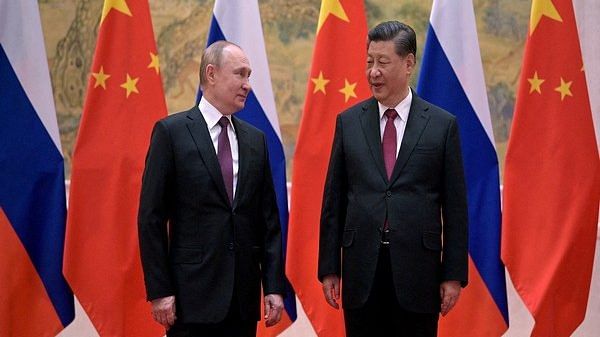Xi Jinping’s absence from the G20 Summit confirms that Beijing increasingly views India as an adversary in the great power competition – accommodation is unlikely.
On Monday, the Chinese foreign ministry confirmed that the Chinese President will skip the G20 Summit. Li Qiang will attend the summit after wrapping up the ASEAN summit in Jakarta.
It is for the first time that Xi has skipped a G20 Summit since coming to power in 2013.
China was quite enthusiastic about G20 over the years as a grouping — seen as a far more balanced, including countries from the Global South.
“The G20 should stick together as partners in meeting challenges and therefore, we can navigate the heavy waves of the global economy and sail towards a future of growth,” Xi had said during the 2016 G20 Summit in Hangzhou.
Now, Xi’s absence from the G20, which is set to begin on Saturday, suggests that Beijing is willing to go to some lengths to stay ahead of India in the regional and the global pecking order. Diluting the influence of G20 is now China’s strategy to undercut the US influence and instead try to boost the relevance of BRICS and the Shanghai Cooperation Organisation.
Also read: Arunachal Vibrant Villages Programme is India’s China strategy. Residents want roads & more
Beijing’s designs
China will make its diplomacy far more black and white as the competition with the US intensifies in multiple domains, from economy to security.
In the last few years, Beijing’s calculus has been geared towards suppressing India’s geopolitical ambitions and stopping it from getting close to the US.
Those surprised by Xi missing the G20 should examine Beijing’s new rhetoric about promoting BRICS and other groupings over the G7 and G20 to counter the US. It’s no longer just a theoretical proposition but a policy instrument that China takes seriously.
Through authoritative commentaries, Beijing had started hinting at backing BRICS over G20 and G7. A Chinese expert called India getting close to the US a ‘strategic misjudgment’.
“India believes the US is more capable of helping it realize the ‘Indian dream’, given the current comprehensive national power gap between China and the US, and that closer relations with the US will give India far more strategic gains than the price it will pay for challenging China” wrote Luo Chunhao, executive director at Institute of South Asian Studies at the China Institute of Contemporary International Relations (CICIR).
The choice to skip the summit may have been Xi’s decision after all, but for New Delhi, something far more crucial was at stake. A joint statement with China onboard will come at the cost of accepting Xi’s terms in the regional and global order.
Also read: Why India’s strategic depth is of little value—from Pakistan to China borders
The border situation becomes a subset
Beijing has no interest in compromising its position as the LAC stand-off has become a stick to induce New Delhi’s neutrality in global affairs. The border stand-off is no longer a minor development that can be resolved through the military dialogue – the tension over G20 confirms the theory. It has turned into a sub-function of the regional and global power competition between India and China.
Undermining global institutions where the US dominates has become one of the policy directions under Xi Jinping as the alternative initiatives such as the Global Security Initiative are presented as an alternative world order.
Xi skipping the G20 may not hurt India’s aspiration as new power in the bloc but Beijing has proven many commentators right about the India-China competition being a domain that will likely keep simmering. India increasingly finds itself not just a security competition with China at the border but a regional competition in South Asia and an ideological competition in the Global South.
China wants to be number one, but it must first protect its position as the number two – India is a threat to the current position. Xi may have handed the mic to Modi by skipping the G20, but we know well Beijing won’t compromise its position as the number two – fomenting trouble for New Delhi.
The brouhaha of true multilateralism is slowly climbing into a ditch as the G20 will become a sideshow with the lukewarm presence of China and Russia.
This may be the new feature, not just the bug of our times. The squeaky wheel of India-China relations will likely slow the train of multilateralism as power politics throws up ideological confrontation.
The author is a columnist and a freelance journalist. He was previously a China media journalist at the BBC World Service. He tweets @aadilbrar.Views are personal.
(Edited by Anurag Chaubey)



